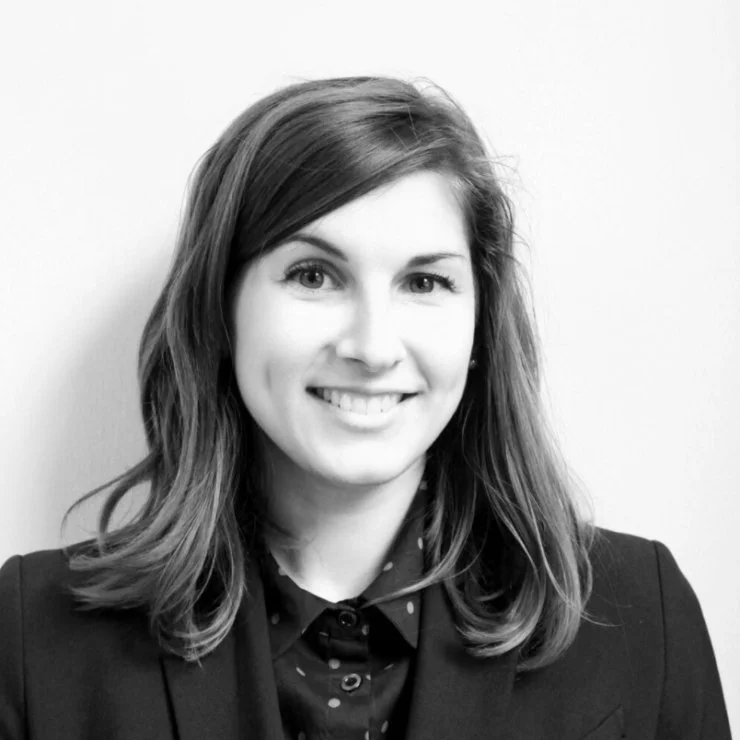Session 4- Regulating and governing AI and Robotic agents
15:15 PM to 16:15 PM
Studio 4
This session will focus on the current challenges of regulating and governing AI and robotic agents. As these systems increasingly influence decisions in various domains, the question of how to ensure accountability, safety, and democratic oversight becomes critical. How can we also ensure there is public participation? Speakers will examine existing regulatory efforts, identify gaps, and propose promising approaches. Finally, it will ask not only how to govern these agents but also what values and visions of society such governance should reflect and uphold.
Meet the speakers
-

Gregory Lewkowicz
MODERATOR
FARI Academic Director - Université Libre de Bruxelles (ULB)
Former representative of the National Fund for Scientific Research (F.R.S.-FNRS), Gregory Lewkowicz is a professor at the Université libre de Bruxelles, a member of the Perelman Centre, and the director of the SMART Law Hub within the Faculty of Law and Criminology. He teaches the course “Smart Law: Algorithms, Metrics & Artificial Intelligence” at Sciences Po Law School in Paris. Additionally, he lectures at Paris II Panthéon-Assas University and the University of Liège. He is a Koyré Senior Research Fellow in Economic Law and Artificial Intelligence as part of the 3IA Chair at Université Côte d’Azur. He is also a recurring professor in the executive education programs on digital transformation and law at HEC-Paris.
His research pragmatically examines the interactions between law and digital technologies (SMART Law), global and transnational law, as well as the contemporary transformations of law and legal professions. He leads several research programs on algorithmic law and the application of artificial intelligence techniques to the development, analysis, implementation, and enforcement of legal or related norms. He is also involved in multiple research and development projects with public and private partners. Gregory Lewkowicz frequently advises public authorities and companies on digital strategy and regulation.
Gregory Lewkowicz oversees the “Penser le droit” collection at Bruylant Publishing. He serves on the board of directors of the European Academy of Legal Theory and the Brussels Academic Higher Education Pole. He is a member of the advisory board of AI4Belgium and the European Committee on AI (AI Board). He established the Brussels Bar Observatory and chaired the European Incubator of the Brussels Bar from 2017 to 2022.
-

Claudia Chwalisz
SPEAKER
Founder & CEO of DemocracyNext
Claudia Chwalisz is the Founder and CEO of DemocracyNext.
She has been working on democratic innovation for over a decade, initially sparked by her research on populism and the extent to which it is driven by people’s disillusionment with the political system and with a lack of agency to shape the decisions affecting their lives.
Claudia was involved in designing the world’s first permanent Citizens’ Assemblies in Paris, Ostbelgien, and Brussels.
Claudia established and led the OECD’s work on innovative citizen participation from 2018-2022, creating the Deliberative Democracy Toolbox, which includes a public database of over 700 examples of Citizens’ Assemblies, the flagship report Catching the Deliberative Wave (2020), standards for implementation (2020), and guidelines for evaluation and institutionalisation of deliberative assemblies (2021), as well guidelines for citizen participation processes (2022).
She led the drafting of the OECD Action Plan on Enhancing Representation, Participation, and Openness in Public Life (2022) and the related chapter in the Building Trust and Reinforcing Democracy report (2022). Claudia also set up the OECD Innovative Citizen Participation Network and the blog Participo. She managed five pilot projects of citizen participation in cohesion policy, supported by the European Commission, advised on institutionalising deliberative democracy in the Basque Country in a project with Arantzazulab, and advised on designing deliberative processes in Finland and Lebanon.
Claudia is an Obama Leader 2023 and serves on the Advisory Boards of the UN Democracy Fund, MIT Center for Constructive Communication, The Data Tank, and Design & Democracy.
She is the author of The Populist Signal: Why Politics and Democracy Need to Change (2015) and The People's Verdict: Adding Informed Citizen Voices to Public Decision-making (2017), and the co-editor of New Routes to Social Justice (2017) and The Predistribution Agenda (2015).
-

Jarmo Eskelinen
SPEAKER
Executive Director at Data-Driven Innovation Initiative
Jarmo Eskelinen is a Finnish innovation strategist with over 25 years of international experience at the intersection of cities, communities and technology. He is a VUB Fellow who has held leadership roles at the University of Edinburgh — where he led the flagship Data-Driven Innovation program — as well as at the Connected Places Catapult in London and Forum Virium Helsinki.
Jarmo has played a central role in building innovation ecosystems, digital infrastructures and data hubs across Europe, with a strong commitment to technology as a public good. He holds Senior Advisor positions at the Aalto University and TalTech Tallinn University of technology.
-

Ronald Leenes
SPEAKER
Professor in Regulation by Technology at the Tilburg Institute for Law, Technology, and Society (Tilburg University)
Prof.dr. Ronald Leenes is full professor in Regulation by Technology at the Tilburg Institute for Law, Technology, and Society (Tilburg University). I was TILT's director from Sept 2015 – Feb 2022.
He focuses on many aspects of the legal and technological landscape, and has worked and published on many aspects of cyberspace regulation. In particular, he is interested in techno-regulation, conceptual issues with respect to privacy, data protection in practice, data analytics, robotics, AI and human enhancement. His current work focuses on control (aka techno-regulation, accountability and transparency) in autonomous vehicles and on regulatory failure in technology regulation.
-

Patrice Latinne
SPEAKER
Partner at EY and the AI & Data Solutions Leader
Patrice Latinne, based in Brussels, is a Partner at EY and the AI & Data Solutions Leader. He brings deep expertise in consulting, strategy, architecture and delivery of enterprise data applications, business intelligence, and artificial intelligence across a wide range of industries, including financial services, retail, government, automotive, manufacturing, and high-tech.
Patrice holds a Master degree in Electro-Mechanical Engineering and a PhD in Artificial Intelligence from Université Libre de Bruxelles. He has led major AI, Data & tech-enabled transformation programs across sales, marketing, finance, IT, and operations. Since 2018, he has also served as a lecturer in AI at Solvay Business School and is a trusted advisor to Chief Data & AI Officers and senior executives in large organizations.
His key recent accomplishments include leading large-scale AI and data migration initiatives, designing and deploying Generative AI systems and their adoption programs, and ensuring compliance with the EU AI Act for several companies. As Certified Data Management Professional (CDMP®) and frequent keynote speaker, Patrice is also recognized for his hands-on expertise and insightful ability to easily make complex concepts accessible for both technical and non-technical audiences.
